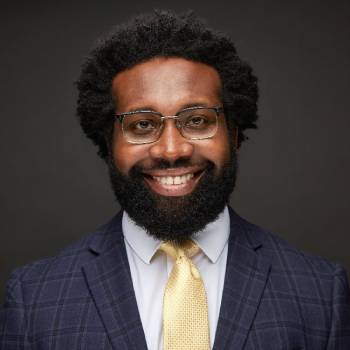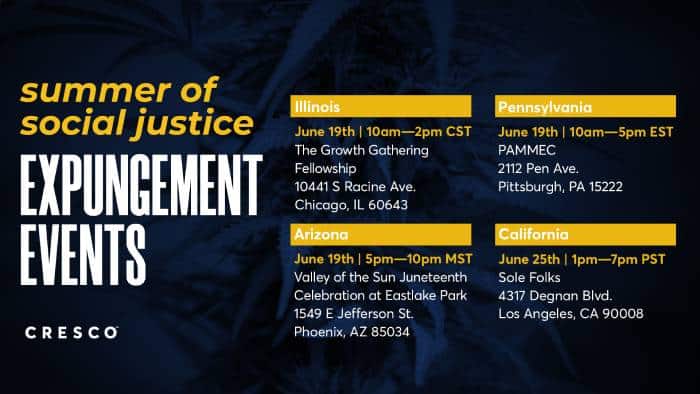

Courtesy of Cresco Labs
In January 2021, Michael Thompson was freed from a Michigan state prison after serving 22 years of a 60-year sentence for selling cannabis in the 1990s. In recent years, particularly as the state-legal cannabis space rapidly expanded, Thompson became emblematic of the deep wounds inflicted by prohibition—and the lasting impact of the War on Drugs’ nefarious legacy.
On June 19, the trailer for “The Sentence of Michael Thompson” was released. The documentary covers his story and the broader implications of cannabis reform vis-à-vis the criminal justice system. It was underwritten and supported by Cresco Labs, which is embarking now on its Summer of Social Justice initiative.
Chima Enyia, Cresco’s executive vice president of SEED (the company’s Social Equity, Education, Development initiative), says that Thompson’s story helps illustrate the disconnect between the burgeoning industry and the men and women left behind by prohibition policies.
“From the Cresco brand, centering on Michael Thompson, his story unfortunately is not unique,” he says. “There is much more work that needs to be done. What we’re doing cannot be performative in nature. What we’re doing and what this industry is doing cannot be tokenized. We have an obligation to lead corporate America on these issues and to evolve our efforts.”
https://www.youtube.com/watch?v=AgN7SZ8ou8A 
The documentary is only the most visible part of this program, however. As the summer unfolds, Cresco will be partnering with on-the-ground community-based organizations around the U.S. to host expungement clinics and elevate workforce development efforts within and around the cannabis space. This, Enyia says, is where the real work of restorage justice takes place: on a local level within communities that are raising their voices against oppressive social policies.
He says that when he took the job at Cresco Labs earlier this year, a conversation with CEO Charlie Bachtell really struck him. The two discussed restorative justice as a pillar of the cannabis business—not a generic talking point, but rather a measure of how an individual business operates and engages with people.
“I saw an earnest commitment to continuous improvement, an earnest commitment to really understanding what social equity is and how we can evolve over the future and really amplify the work we’re doing in the community,” he says.
Two groups involved in Cresco’s work this summer are the National Diversity & Inclusion Cannabis Alliance (NDICA, say it out loud) and the Black and Brown Cannabis Guild. The guild, as an example, is running the 2021 Clean Slate program, which offers expungement guidance for those convicted of cannabis charges in Michigan.

“These are things that we should be doing anyway,” he says. “This should be part of the culture of this industry. As we grow, it will remain the culture of Cresco. We’ll continue to evolve our efforts going forward. There’s still much to do. We are committed to growing and lifting as we climb. That’s the key—lifting as we climb.”
For Enyia, on a more personal note, it’s also a chance to expand his ambitions in a professional space more amenable to the cause. He came to Cresco Labs after working for the state as the executive director of the Illinois Liquor Control Commission. That, too, is an industry rife with oppressive history, but Enyia says the opportunities are a bit more inclusive in cannabis. In this industry, it’s a pillar.
“Coming from liquor, there’s a lot of work there yet to be done. I was ready to expand and leverage my expertise into the cannabis industry,” he says. “Cannabis is in a unique space with the technology that we have, with the bandwidth that we have, to lead corporate America.”
